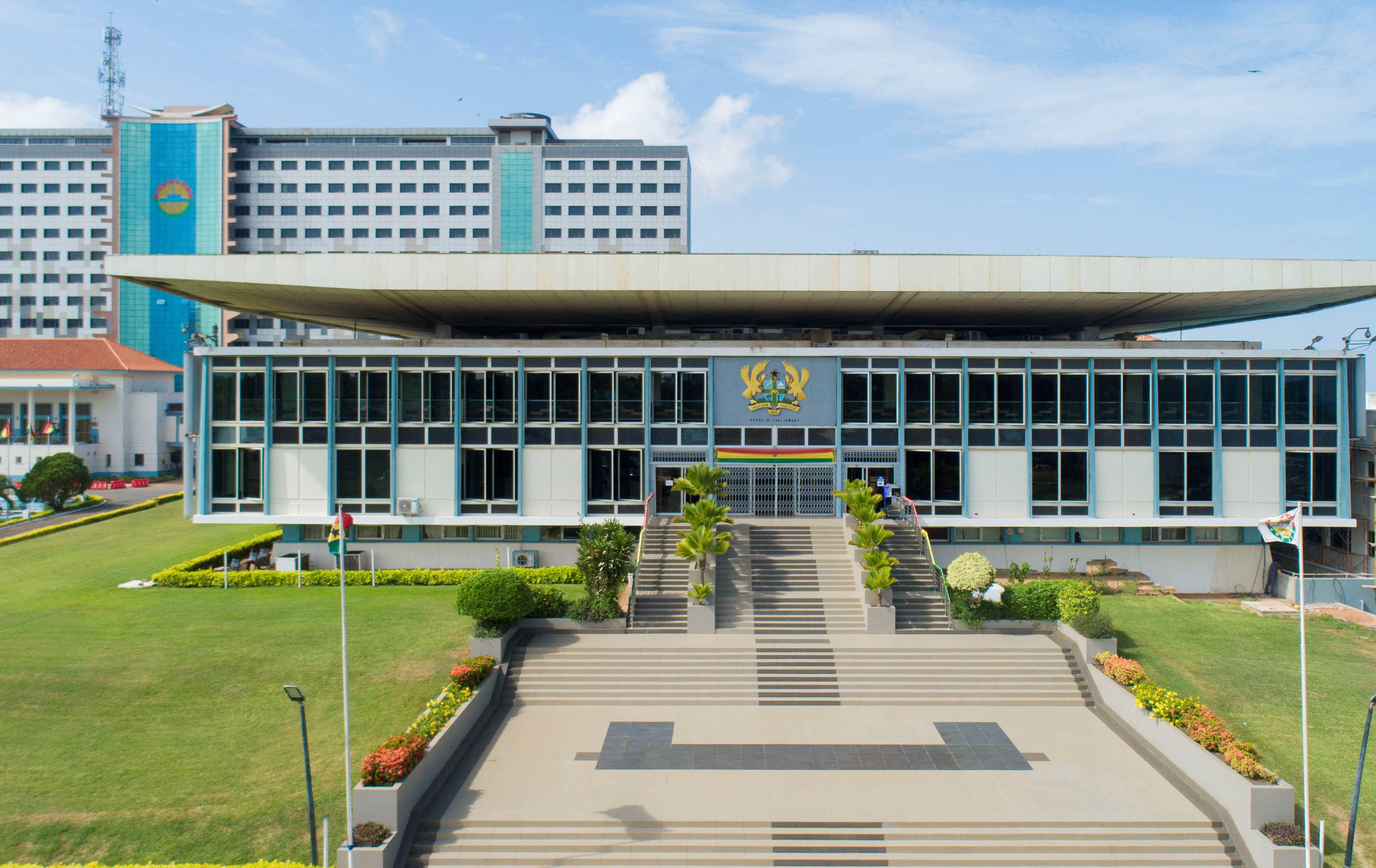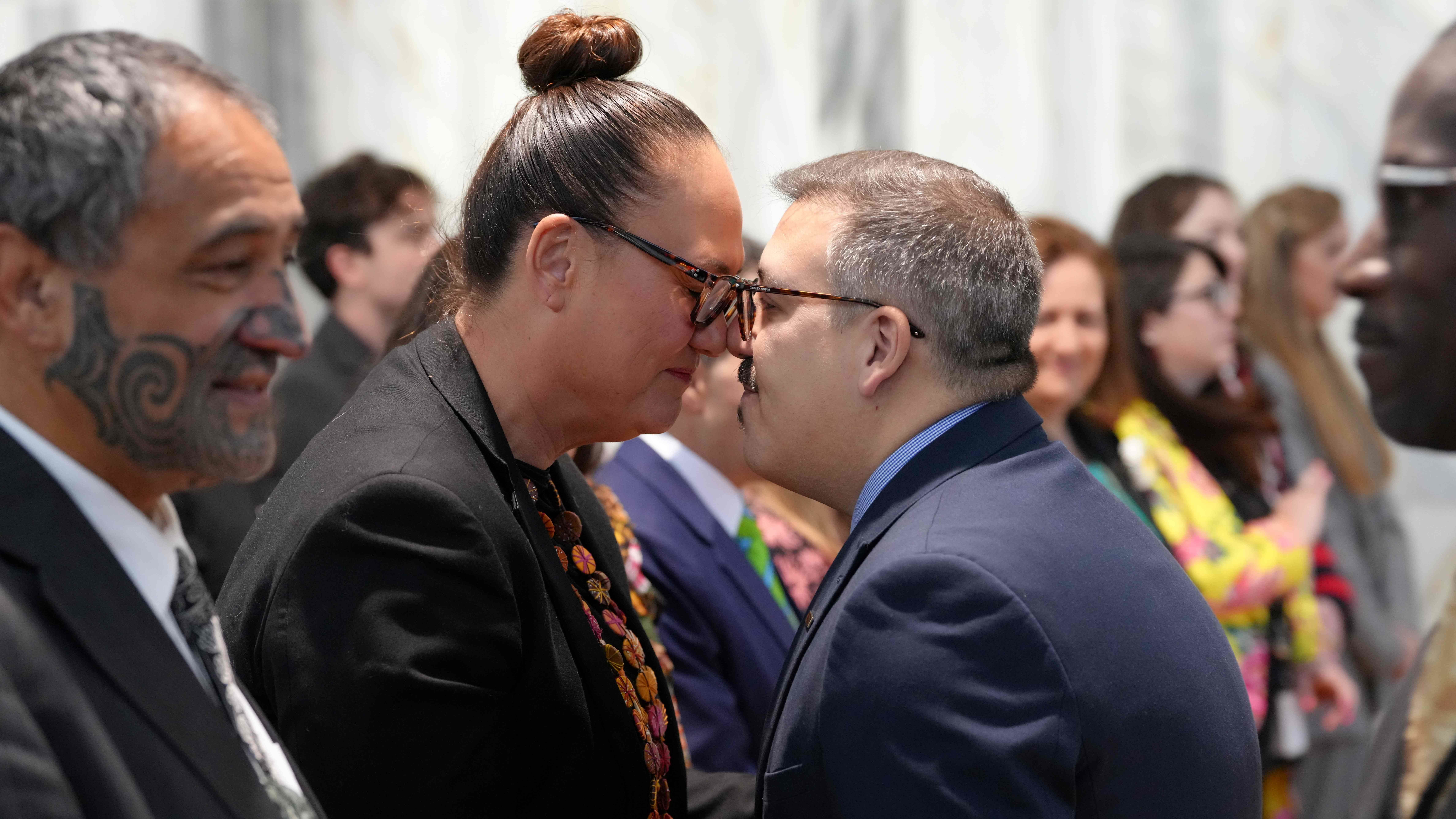
The next Commonwealth Secretary-General? Candidate from Ghana
The next Commonwealth Secretary-General? Candidate from Ghana.

Hon. Shirley Ayorkor Botchwey is from Ghana. A lawyer, diplomat and politician, she has been the Foreign Minister of Ghana since 2017. Her previous roles include Deputy Foreign Minister, Deputy Minister for Trade and Industry and a Member of the Ghana Parliament.
Published 11 July 2024.
- Can you tell us about your experience of the Commonwealth growing up, living and working in a Commonwealth country?
Apart from a short period of stay in England, I’ve spent most of my life in Ghana, the first sub-Saharan country to gain political independence and an active member of the Commonwealth. The principles of the Commonwealth have influenced Ghana’s efforts towards, and its record of, democracy and good governance. Apart from the contribution of Commonwealth election observation and capacity building to our successful political transitions, Ghana’s democracy, including a vibrant media, an independent judiciary and a strong civil society, reflect Commonwealth values that have made an impact on me, shaped my own political philosophy and journey as a four-term elected legislator.
I grew up familiar with the Commonwealth Scholarships, a programme that has reinforced my own attachment to human resource development as a vital condition for building resilience. The history and traditions we share as Commonwealth countries, the English language and its cultural attributes shaped my education and affinity for the Commonwealth. The Commonwealth Games united ordinary people across the Commonwealth as much as Shakespeare did. l hold that we, the people of the Commonwealth, come from diverse nations and cultures, but we share a ‘common wealth’ of values, values I cherish.
- Has your upbringing influenced your career choices in politics, development and diplomacy?
My upbringing has mostly influenced my career choices, including the desire to take on the ambitious goal of transforming the Commonwealth as Secretary-General. Studying in an all-girls secondary school, inspired by my parents to aim for the skies, and the constant exposure to the harsh realities of disempowered women drove me to carve a different path for myself and, hopefully, future generations of girls. Education, especially higher education, is of great importance to me and has influenced my career choices.
I was a Parliamentarian for 16 years, comprising four consecutive terms, from 2005. For eight of those years, I was the representative for, and voice of the most populous constituency in Ghana until it was re-demarcated into three. I contested elections against male candidates and won.
Before that, I worked as a marketing and communications consultant. However, there’s a reason I switched to politics to represent my community. I care about people - especially young and working people; fisherfolk and small traders of my constituency whose dreams and aspirations are no different from those of people across the Commonwealth. They all wish to make a decent living to take care of their families. This is only possible if leaders at national and international levels, including people like myself, remain mindful of our obligations to those we serve, and the ideals of democratic governance, with a commitment to lead responsibly, efficiently, effectively, ethically and with integrity. This was my motivation in seeking a parliamentary seat, and why I want to be the next Commonwealth Secretary-General.
- Why do you want to be the next Commonwealth Secretary-General?
I’ve put myself forward because I care about the Commonwealth and its diverse peoples; and I’ve the leadership skills and record, networks and character for getting tough things done. The Commonwealth has enormous potential yet to be realised for its 2.68 billion citizens, that could make it the most consequential organisation after the UN. I’m motivated to see that vision realised.
As a diplomat of long-standing, I’ve led or been part of landmarks in diplomacy and international relations with concrete outcomes. During Ghana’s tenure at the UN Security Council (2021-23), I led the effort for the unanimous passage of Resolution 27/19 in November 2023 to guarantee, for the first time, UN funding for Africa-led peace support operations.
As Chair of ECOWAS Council of Ministers, I played an active role in the efforts to prevent coups in the region, and reform the institution’s Supplementary Protocol on Democracy and Good Governance. I engaged military leaders, who’d taken power unconstitutionally, to develop roadmaps towards returning to constitutional rule. I also led reforms of the ECOWAS Commission, introducing efficiencies and making huge savings that were re-directed to Community Programmes.
I worked with colleague Ministers in Ghana to execute the ‘Year of Return’ and ‘Beyond the Return’ policies, yielding strong bonds, closer than ever before, with the African Union’s sixth region, the Caribbean, and Global Africa. I’ve worked in concert with the G7 to address issues of international peace and security, democracy and the reform of the development co-operation framework. My capacity for leading teams to achieve transformative results would serve the Commonwealth well in realising the vision of a ‘New Commonwealth’.
- What are your main plans and priorities for the job of Secretary-General of the Commonwealth?
The members of the Commonwealth want an institution that is relevant to their efforts to build resilience - democratic resilience, economic resilience and climate resilience. To realise that goal, there is a need for a transformative vision, strategic partnerships and the revival of confidence and support of the Member Countries. This is fundamental for mobilizing the required resources.
I have accordingly proposed six areas for repositioning the organisation to respond to the expectations of the hundreds of millions across the Commonwealth for a decent and fulfilling life. These are:
- Democracy, Commonwealth Values and Realising the Democratic Dividend
- Trade and Investment
- Youth, Education, Skills, Innovation and Start Ups
- Climate Change
- Small Island Developing States and Small States
- Managing resources for an Effective Commonwealth Institution.
- What are the biggest challenges facing Commonwealth Parliaments and Parliamentarians?
Commonwealth Parliaments face three distinct challenges. There is an increasing complexity to the challenges societies face and this requires parliamentarians to build the capacity to address them holistically.
Secondly, the structure of Parliament, especially its Committee systems, no longer responds to the integrated and comprehensive treatment sustainable development requires.
And thirdly, growing inequality, fraying social protection systems, threats to democracy, including declining support for democracy worldwide, and the existential threat of climate change require deliberate modalities for consultation, engagement and effective representation with society at large.
The Commonwealth Secretariat must mobilize the intellectual capacity of the Commonwealth, in conjunction with the Commonwealth Parliamentary Association, to explore ways to adapt the structures, methods and processes of Parliaments to respond to the integrated and comprehensive nature of the challenges to sustainable development.
- 60% of the Commonwealth’s population is aged under 30. How can the Commonwealth engage with more young people?
To effectively engage this demographic, the Commonwealth must foster intergenerational collaboration and create youth-centered policies and programmes.
We must prioritise investment in education, vocational and technology skills-training to equip young people with the relevant capacity to take up employment opportunities - including self-employment opportunities through start-ups, to empower them to participate meaningfully in the workforce of modern economies. By creating pathways to meaningful work, we expand opportunities for the youth to contribute to their communities and national economies, fulfill their potential and engender prosperity within the Commonwealth.
We must encourage youth participation in political and civic activity to bridge the gap between policymakers and young people in order to prepare them for decision-making roles in the future. By involving them in decision-making and governance, we can ensure their voices and perspectives shape the future of the Commonwealth.
We must work with young people through programmes that enable them to become a bulwark against misinformation and disinformation, by deploying the tools of modern technology and the creative industry for peace, conflict-prevention and security. Peace and stability are vital to attracting investment and building resilient economies and prosperous societies.
We must foster equality and inclusion. Policies should ensure that young people, regardless of gender, ethnicity, or socio-economic background, have equal opportunities to thrive.
- How can the Commonwealth provide leadership on the UN Sustainable Development Goals?
The Commonwealth should become the leader for a new international development cooperation model that can transform the economies of its Member Countries and deliver inclusive development and climate resilience. Trade and investments, debt treatment and access to concessionary financing for high impact projects will be key, especially for developing countries.
Part of that agenda must be a Commonwealth-wide response to climate change that encompasses a Commonwealth renewables revolution that recognises the huge need for developing, financing, producing, installing and servicing the infrastructure. Creating a renewables energy market provides a significant opportunity to mitigate climate change, while building support for emissions reduction targets. We must enhance the Commonwealth’s climate change leadership to unlock vital finance for vulnerable countries, build blue and green economies across the Commonwealth and help members overcome external shocks. This requires leveraging the convening power of the organisation for building consensus and advocacy in key global policy forums, to secure the uptake of Commonwealth ideas.
The Commonwealth should also continue to pay special attention to Small Island Developing States and Small States, and strive to build resilience and promote inclusive development in these vulnerable economies.
The Commonwealth should lead in convening all relevant parties to define the critical actions required to access, adapt and exploit research and development on wind, solar, tidal and wave energy. That equally applies to advocating for the catalytic use of development finance and multilateral resources to leverage upfront private sector investments.
Additionally, the Commonwealth should lead in forging strategic partnerships, including with the UN System, to ensure policy coherence and responsive programme support for Commonwealth countries.
- What do you think are the Commonwealth’s greatest challenges today?
The greatest challenge of the Commonwealth is adapting it to respond to the sustainable development needs of its member-countries in a fast-changing world, for the greatest benefit of all its members, especially, the most vulnerable of them. The current development cooperation framework has failed to address the weak resilience that characterises the economies of Commonwealth developing countries. At the same time, the Commonwealth has the world’s greatest vulnerability to climate change with thirty-three of its members, being Small States.
As an organisation whose Charter establishes a direct link between its values and the aspirations of Commonwealth citizens, it is a concern that democracies are facing their greatest threat, with increasing majorities expressing declining confidence in democracy. Meanwhile, the widening inequality and erosion of social protection systems are creating a fertile ground for the spread of disinformation and misinformation that often undermines democracy and good governance. Recently, the capacity of the organisation has also been weakened as member countries have funded work on a project-by-project basis, instead of supporting the organization, as a whole.
Reviving the confidence and support of all members is an imperative, if the Commonwealth Secretariat is to be a viable vehicle for transformation. That means transforming the Secretariat itself into a strong and independent multilateral organisation that can count on adequate, predictable and consistent core funding.
Securing agreement around the vision for a New Commonwealth is a prerequisite for uniting and rallying member-countries around an effective Secretariat.
Return to the blog series: 'The next Commonwealth Secretary-General?'
Follow the CPA on social media to continue the discussion.



